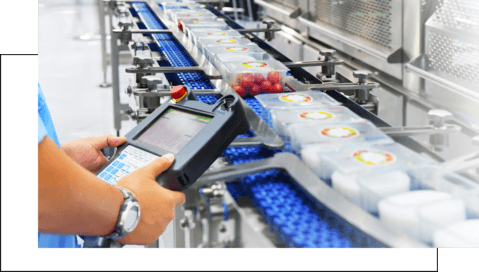The undergraduate Food Engineering Programme was established in the 2019-2020 academic year. The curriculum is designed and taught in accordance with international standards. The applicants who pass matriculation exam were invited to apply to learn the 6 year course of B.E (Food Engineering).
The programme aims to develop high-quality nutritional engineers who can one-way fill the nutritional requirements for the advancement of modern food related to technologies. There will be many national economic, social and health benefits for being able to produce highly qualified food engineers in various fields such as local food industries and nutrition business.
The Curriculum, Syllabus and course outcome of the undergraduate Food Engineering were co-designed and enacted by the experienced nutrition educators, teachers from the current Department of Chemical Engineering and professionals from the University of New South Wales (UNSW) to be in line with international standards. The first and second year courses of the Food Engineering Program include the basic engineering subjects like other engineering degree programs. From the third year , the courses are specialized in Food Microbiology, Food Chemistry and Biochemistry, Food Science and Nutrition, Introduction to Project Planning and Development, Food Preservation (Principles and Application) and will be taught in conjunction with unit operations in Food Engineering. In the fourth year, the undergraduate course includes Food Processing Principles, New Product Development, Food Packaging and also Food Engineering Integrated Design Project will be taught together. The fifth year undergraduate course will cover Food Diagnostics, Food Safety and Quality Control, Instrumentation, Food Process Control, Food Engineering Integrated Design Project II, Chemical Reaction Kinetics and Reactor Design, Modeling, Simulation, Optimization and Food Process Design, and Biochemical Engineering.
Elective subjects are taught as

During the third, fourth and fifth year, the students have to complete a two-week factory practical training at the annual semester breaks and re-summits the assignments. During the first semester of the final year course , a two-month internship will be held at the factory .In the second semester , the final year project will be researched and submitted as a Mini Thesis , and B.E. (Food Engineering) will be obtained.
The performance of the nutritionists has become an important factor in the state's efforts to improve the living standards of the citizens. The university introduced the Food Engineering degree program to produce and distribute high quality local food products that can match modern food products in the coming ASEAN Free Trade Area (AFTA) and to provide nutritional technology and health safety assessments on foodstuffs imported from around the world. Due to the program, the country will have qualified nutritionists and strive for the development of the country's human resources and technological development. It will be able to produce Food Engineers who can create and manage a fully international standard food industry that available the quality assurance for From Farm to Folk process that posed like Raw Material to End Product; Good Agricultural Practice (GAP), Good Manufacturing Practice (GMP), Hazard Analysis Critical Control Point (HACCP) based on the basic nature of Engineering such as Optimization, Commercialization, Design Calculation etc.

